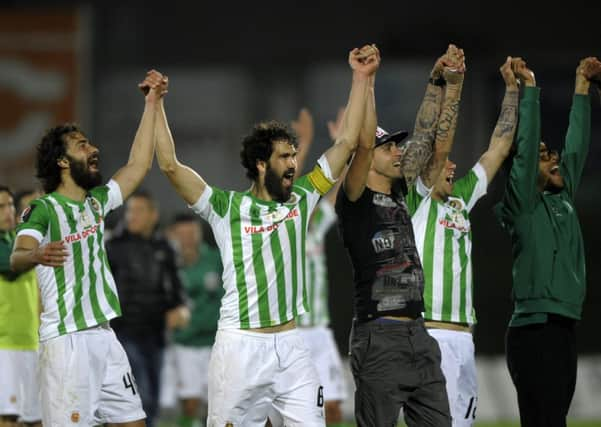A better rhythm to life and football in Portugal


It is one of the things Ian Cathro likes most about Latin life, together with the climate and the football, none of which can be separated from the other.
Take a wander down to the riverside centre of Porto, where the cafes and bars are open late, and you might chance upon the 27-year-old Scot, hunched over his laptop. He might be analysing the previous day’s match, preparing for the next one, or maybe even reflecting on how far he and his club have come in the last two years.
Advertisement
Hide AdAdvertisement
Hide AdNot only is the young Dundonian, with no significant playing experience, assistant manager of a top-flight team in Portugal, he is helping them to prepare for the most momentous spell in their history. Rio Ave, a community club with an average crowd of just under 2,000, are about to play in not one, but two, national finals.
Based half an hour north, in the coastal town of Vila do Conde, the club that has forever lived in the shadow of Porto can scarcely take it all in. On Wednesday, they will play Benfica in the country’s League Cup final. Eleven days later, they will confront the same opponents in the Portuguese Cup final. Even if they lose, they will qualify to play in Europe for the first time.
“The best way to give it some perspective is to say that they have only ever been to one major cup final, and that was in 1984,” says Cathro. “This period just now is their longest in the top division, and it’s only been six years. The rest of their history has been spent in regional leagues, the second division and occasionally the Primeira Liga. So what’s happened this season has been massive.”
That Cathro should find himself at the centre of all this is a story in itself. Although briefly on the books of Forfar Athletic and Brechin City, a recurring knee injury and a degree in business management persuaded him to set up his own coaching company, the philosophy of which was at odds with traditional methods.
So effective was his programme of technical development, the key to which was repetition, that Craig Levein, the then Dundee United manager, made him head of the club’s youth academy. Two years later, again thanks to Levein – by now in charge of the national side – Cathro was put in charge of the SFA’s regional performance school in Dundee.